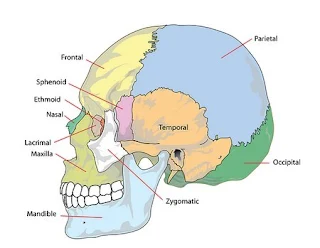What is the Temporomandibular Joint
The temporomandibular joint (TMJ) is in the jaw, in front of each ear. So there are two temporomandibular joints. You can feel the joint when you put your finger on your jaw in front of your ear. When you open and close your mouth, you can feel the joint move.
It is called the temporomandibular joint because it connects the temporal bone of the skull to the mandible; the mandible is the lower jaw.
The TMJ is probably the most used joint in the entire body. Every time you chew your food, chew gum, talk, sing and yawn, the TMJ is moving. Each of the temporomandibular joints is comprised of a ball, disk, and a socket. The TMJ has a disc between the ball and the socket.
The disc cushions the load of opening and closing the mouth. Along with these, the TMJ, several muscles, ligaments, and the jaw bone all work together in complex motion every time you ask for another cup of coffee. The TMJ is one of the most complex joints in the entire body.
Symptoms of TMJ Disorder
Approximately 15 million Americans suffer from some form of TMJ disorder (TMD) or jaw and face pain. The common symptoms of TMJ disorder include pain in and around the ear where the TM joint is located.
The symptoms include headache, stuffiness and stiffness, neck aches, tenderness of the jaw, trouble opening your mouth, earaches, feeling dizzy, hearing difficulties, pains in the back teeth and popping or clicking noises when opening and closing the mouth.
These pains can be a sharp pain or a constant dull aching.
The Causes of TMJ Disorder
Most of us have actually felt TMJ disorder in a minor form. A whole day of chewing gum and your jaw aches or hurts. Habitual chewing of gum can lead to TMJ disorder. Another habit that some people aren’t even aware they have is the constant grinding of their teeth and jaw.
Sometimes people do this in their sleep and or during the day without even knowing it. This can certainly lead to TMJ disorder.
Chewing your food on only one side of your mouth out of habit can also cause TMJ disorder. Some people will chew their food unnaturally or on just one side because of dental problems. This will put pressure on one side of your mouth and jaw affecting the TM joint on that side.
An injury to the jaw can cause TMJ as can overextending the jaw, which could be a rather violent yawn or dental work. It could also be a sinus infection or a bad tooth. Arthritis can also be a cause; the temporomandibular joint is involved in half of the cases of rheumatoid arthritis.
An odd bite down on food can also cause this problem. Have you ever bitten down wrong and then felt a sudden pain exactly where the TMJ is located, that can also cause TMJ disorder, this usually doesn’t last very long or become chronic.
Some people have a habit of chewing on ice cubes all day. This habit could cause TMJ disorder and damage your teeth.
Home Remedies For TMJ Disorder
There are simple things you can do to alleviate the pain that goes along with TMJ disorder. Make a conscious effort not to grind your teeth and jaw during the day.
Many days when you’re under stress and or drink too much caffeine, you can catch yourself grinding your teeth and jaw together.
Chewing your food thoroughly is important for good health, a healthy digestion system and to prevent choking. Try and choose softer foods while your jaw hurts. For example instead of chewing steak, eat fish or a bowl of chili. Fill up more on soup. Eat foods that require less chewing.
Like any joint in the body, the TMJ can become inflamed and sore, putting an ice pack and or use warm moist heat on the joint can relieve the pain and heal it. Alternating between the heat and ice pack can also help.
Since stress is a contributor to TMJ disorder, practice stress relieving techniques like deep breathing and meditation can help. Yoga and Tai Chi also teach healthy breathing techniques.
Using a mouth guard at night can prevent you from grinding your teeth and clenching your jaw while you sleep.
You can also use a cold and heat pack that easily fits around your head to alleviate the pain from TMJ.
Going to the Dentist for TMJ Disorder
A dentist can help identify the cause of your jaw pain. Sometimes it can be a simple diagnosis like the start of a sinus infection, gum disease or a toothache.
The dentist might prescribe a muscle relaxant, a steroidal drug or a mouth protector to keep from grinding the teeth and jaw while you sleep. The dentist will check the teeth for grinding, a high filling or misaligned teeth, which can affect the jaw. He could recommend a pain reliever like Aleve.
Natural Ways to Relieve TMJ Disorder
Chinese medicine has numerous references to TMJ disorder with ten different paths leading to the TM joint. There has been a lot of success with acupuncture in the relief of TMJ pain. You could also consider a combination of Chinese medicine with western medicine.
Sometimes you wake up with a pain in the TMJ area or you chew wrong and the pain only lasts a day or two. If the pain affects your eating or lasts more than a week, you should see your doctor or dentist, letting this go untreated can make it harder to treat when you finally go to the dentist.
About the Author
Sam Montana is a certified Food Over Medicine instructor from the Wellness Forum Health Center and certified in optimal nutrition from the Harvard T.H. Chan School of Public Health.
Copyright © 2009-2019 Sam Montana

